|
Despite efforts to quash pro-Palestinian protests on campus, students continue to organise and demand divestment from companies with ties to Israel, as the US witnesses an "Ivy League spring." For the past week, Columbia University has emerged as one of the latest epicenters of the global struggle to save Gaza from the Axis of Genocide. Israel with full economic, diplomatic and military support of the United States and other Western colonial powers, has been starving, dehydrating and carpet-bombing Gaza for 200 days now. Inspired by the pain that every free-thinking human being feels at the sight of emaciated and burnt children and families, Columbia students took on big personal risk when taking a stand and building a Gaza Solidarity Encampment in the centre of campus last week. Their goal: to get the university to divest from companies with ties to Israel. After Columbia's president disbanded the protests by calling the police, another encampment has already popped up on campus. In addition to divestment, demonstrations are now calling for the removal of police presence and the reversal of disciplinary action taken against protesters involved in the first encampment. The enormity of this image: pic.twitter.com/SfuaLlP4dV — Prem Thakker (@prem_thakker) April 18, 2024 I am a Columbia University alum and fired John Jay College of Criminal Justice professor who has joined in, spending time listening and learning from this fearless generation of student fighters. I cut my teeth as a student organiser at Columbia College from 1996 to 2000 and at the School of International and Public Affairs (SIPA) from 2004-2006. In 1997, we shut down the campus with a giant human circle in support of striking workers on campus who were mistreated and underpaid. The ongoing struggle for more classes on anti-colonial struggles and ethnic studies included a banner drop during graduation, highlighting some of the voices marginalised by Columbia’s core curriculum. On October 4, 2006 we shut down the racist, anti-immigrant group the Minutemen who were pushing white supremacy and anti-immigrant hysteria on campus. The Gaza Solidarity Encampment follows a storied history of students standing up for what is right, just like the 1968 generation did in protest of racism against Black America and the US war in Vietnam, in which we dropped 6 million tons of napalm and bombs on the Southeast Asian country from 1962 to 1975. The Baroness Shafik At the centre of the struggle for free speech and a free Gaza is the new president of Columbia, Manouche Shafik, who is trying to finish her first year on the job. She justified siccing riot police on peaceful student protestors by saying, "the safety of our community was my top priority and we needed to preserve an environment where everyone could learn in a supportive context." Despite mainstream media distortions and lies, there are no documented incidents of hate speech associated with the Gaza Solidarity Encampment. Hailing from a background of extreme privilege, Shafik is literally a "Baroness," following her employment with the Bank of England. She has a track record of defending free speech when it comes to white supremacists. She has long served global elite interests. She sits on the board of the Bill and Melinda Gates Foundation. There is no disguising where she stands on the global division of humanity: she's on the side of the global 0.1 percent. As former Deputy Governor of the Bank of England, the same bank that stole $1 billion dollars in Venezuelan gold reserves at the behest of the US government in 2019. College presidents like Shafik and Mason are willing to scrap academic freedom and our first amendment rights to please powerful Zionist and foreign policy establishment interests. In an age where identity politics and hypocritical liberal diversity rhetoric dominate the US political scene, the Baroness is seen as a strategic asset to Columbia. In her testimony before the House of Representatives about rising anti-Semitism concerns on campus last week, Shafik looked comfortable engaging in the charade. Aware of the consequences of not bowing down to pro-Israel and pro-genocide Republicans and Democrats, like the president of my college Karol Mason, Shafik engaged in the McCarthyite hearings. Determined not to be taken down like the presidents of Harvard and the University of Pennsylvania, college presidents like Shafik and Mason are willing to scrap academic freedom and our first amendment rights to please powerful Zionist and foreign policy establishment interests. In a recent interview, Rebecca Jordan-Young, a Columbia and Barnard professor, explained the significance of the televised hearings: "What happened at those hearings yesterday should be of grave concern to everybody. What we got was a live performance (of President Shafik) throwing the entire university system under the bus." While Columbia University’s president testifies before Congress about alleged antisemitism on college campuses, professors @NaraMilanich & Rebecca Jordan Young say the hearing is weaponizing anti-semitism to suppress free speech in an “intensifying attack on liberal education.” pic.twitter.com/85EO2xjzxx Another professor from the college, Nara Milanich, warned: "Antisemitism here is being used as a wedge. It’s being used as a Trojan horse for a very different political agenda." As the cynical circus played out in the nation's capital, students seized the national and international moment to escalate the struggle to halt the genocidal madness raining down on Gaza. Hundreds of students erected tents on East Lawn of Columbia’s 116th street campus. Student activists reiterated in their speeches and posters: "Stay Focused!" insisting on not allowing anything to distract them from what gave birth to the encampment, the asymmetrical war on Gaza. Palestine is everywhere What's happening at Columbia actions has inspired a wave of solidarity protests at Harvard, Yale, the New School in New York, New York University, the University of Michigan and across the world. On Saturday, student groups led a march against displacement, connecting the 76-year war on Palestine to the evictions that thousands of uptown New York City families have endured at the hands of one of New York City's biggest landlords, Columbia University. After more than 100 students from Barnard College and Columbia University were arrested at an encampment calling for the school to divest from Israel amid the country's deadly assault on Gaza, similar encampments have begun across the United States. pic.twitter.com/DfK2MXbYx3 — Democracy Now! (@democracynow) April 22, 2024 Columbia students are facing unprecedented threats and repression. In January, former Israeli soldiers sprayed student protestors with a chemical called skunk, resulting in hospitalisations. Shafik has suspended the Students for Justice in Palestine and Jewish Voice for Peace clubs - and is being sued for it. Meanwhile, the media accuses us of supporting terrorism. An NYPD drone hovered over last week's encampment. Organisers encouraged everyone to wear masks to protect their identity. Private detectives have harassed students. One undercover officer threatened us with his gun. If your family, community and nation was being dehydrated, starved, blockaded and bombed out of existence, how would that impact your preparation for exams and term papers? Has US society stopped to think of the impact of the genocidal violence raining down on Gaza on Palestinian-American students? If your family, community and nation was being dehydrated, starved, blockaded and bombed out of existence, how would that impact your preparation for exams and term papers? The Columbia administration's response has been to ignore the students (the true protagonists) and resort to the age-old trick of blaming "outside forces." One-sided mainstream news coverage contains a lot of misinformation about the student protests, going as far as to try to link them to Hamas. There is a fresh and full barrage of mainstream headlines about anti-semitism and the encampment "making it unsafe for Jewish students at Columbia." This week, Columbia has gone as far as to cancel in-person classes, creating headlines such as "Jewish students told to leave Columbia after Passover warning." Isolated and despised by humanity, the forces of genocidal Zionism dig their holes ever deeper. Many faculty members have expressed their dismay at Shafik's crackdown on free speech. The wider movement participated in jail support. All the way from Gaza, the Palestinian resistance has recognised the heroic sacrifices and contributions of the student movement. "Your people are my people. Our struggles align" Students have been eager to hear from activists from past generations who stood up at Columbia. One of the protestors from 1968 spoke at a teach-in on the East Lawn over the weekend. 🚨UPDATE: Cornel West has joined the students occupying the West Lawn at Columbia University in support and solidarity with the students arrested in the Gaza Solidarity Encampment and the Palestinian struggle!!! pic.twitter.com/hfMOds7Qi0— sebas 🇵🇸🇸🇩🇨🇩🇵🇬 (@cybersebb) April 18, 2024 Dr. Norman Finkelstein, third party presidential hopeful Dr. Cornel West and faculty who were fired from other universities addressed the encampment. This was in the spirit of the Liberation Classes of 1968, when students organised teach-ins around local and global issues left out of Columbia’s "core curriculum." On behalf of a generation of student leaders and fighters who came before you, thank you to the Students for Justice in Palestine (SJP), Jewish Voice for Peace (JVP) and other student organisations who have not stood down in the face of genocidal lies and bombs. Both of these student groups have been suspended for working to expose and stop the genocide. Their bravery and organisation of this leadership at Columbia has given us all – from Gaza to Harlem – more hope and determination that we can stop the genocidal, colonial zionist war machine. Stay strong Columbia students! You are not alone! Suspended students, doxed employees, fired professors: We are all in this together. We got your back! AuthorDanny Shaw This article was produced by TRTWorld. Archives April 2024
0 Comments
5/23/2021 The Palestine Liberation Organization Chooses its Path: The P.L.O. Between the October War and Camp David, 1973-1978. By: Alex ZambitoRead NowFollowing the 1973 October War between Egypt/Syria and Israel, political conditions around the Palestinian national struggle changed dramatically. The decision by both Egypt and Syria to pursue a political instead of military solution and encourage the Palestine Liberation Organization (PLO) to do the same, exacerbated already simmering tensions within the PLO between “Moderates” who wished to pursue a political settlement and “Rejectionists” who insisted on the primacy of armed struggle. This internal conflict would be decided in the favor of the “moderates” as the PLO began its long trek to a political settlement inaugurated by the 1993 Oslo Accords. On October 6, 1973- the Jewish holiday of Yom Kippur- Egypt and Syria launched offensives against Israel with Egyptian forces crossing the Suez Canal into the Sinai Peninsula and Syrian troops entering the Golan Heights- lands occupied by Israel since the Six-Day War in 1967.[1] These offensives initially met with great success as Egyptian troops and tanks shattered the costly fortifications of the Bar-Lev Line along the Suez Canal and Syrian forces made significant advances into the Golan Heights.[2] However, an Israeli counter offensive and U.S. airlift allowed the Israeli army to push Syrian forces out of the Golan Heights and break through Egyptian lines to cross the Suez Canal.[3] The War ended on October 25 when an American-Soviet brokered ceasefire resolution (Resolution 340) was passed by the United Nations Security Council.[4] Despite the war only lasting nineteen days its political fallout was significant. The myth of Israeli military invincibility was shattered by the early military successes of the Egyptian and Syrian armies.[5] With these successes the Arab armies also regained some of the prestige they had lost after their humiliating defeat in 1967.[6] Most importantly, the war broke Arab-Israeli negotiations out of the state of limbo (“No War, No Peace”) in which their respective Soviet and American patrons had placed them since the end of the Egyptian/Israeli War of Attrition in 1970.[7] As historian Craig Daigle has demonstrated, Egyptian President, Anwar Sadat, sought to pursue a “limited war” which would force the renewal of negotiations for a final settlement on the Palestine issue and increase Arab leverage in those negotiations.[8] Following the war, both the Egyptian and Syrian governments pursued a political settlement for Palestinian national aspirations and began to pressure the PLO to do the same.[9] For the PLO, the war changed political conditions drastically. Having regained the political initiative, the Arab states now pushed for a political settlement, which, prior to the war, the PLO had always officially rejected insisting on the sanctity of armed struggle.[10] This change in the regional political situation exacerbated disagreements which had been simmering in the PLO prior to the war. On one side were “moderates” who were willing to pursue a political settlement to their national aspirations and accept a Palestinian state on part of Palestine. On the other were “rejectionists” who refused participation in any political settlement and insisted on the creation of a single, secular state on all Palestinian territory.[11] However, even prior to the war the PLO had begun making overtures indicating its willingness to participate in a political settlement. In 1969, PLO President Yasser Arafat approved the opening of a “back channel” to Washington between his security chief, Ali Hassan Salameh, and CIA field agent, Robert Ames.[12] Through this channel, which operated until Ames’s death in 1983, Arafat’s party, Fatah, provided security for U.S. diplomats in Lebanon and shared intelligence on threats to American interests.[13] Further, in July 1973 Arafat sought to open a direct political channel with Washington which was rebuffed.[14] Following the war, the Arab states sought to encourage this trajectory and marginalize “rejectionist” groups. In November 1973, all countries at the Algiers Summit of the Arab League, except for Jordan, voted to recognize the PLO as the “sole legitimate representative” of the Palestinian people.[15] This was reaffirmed by a unanimous vote at the Rabat Summit the following year.[16] However, conservative Arab governments such as Saudi Arabia predicated this recognition on the suppression of radical elements within the PLO.[17] Additionally, the declaration from the Algiers summit removed any reference to the sanctity of “armed struggle” or the “Indivisibility of Palestine” which had previously been mandatory.[18] This strategy was summed up in a written statement by the Egyptians delivered to the Israeli government via the United States explaining their decision to recognize the PLO at the Rabat summit, claiming, “The Egyptian Government was forced to pursue this tactic to win over the PLO so that no change would take place in the stands of the moderate sides in favor of the extremists within the PLO.”[19] This path was further encouraged in November 1974 when the U.N. General Assembly recognized the PLO as the “sole legitimate representative” of the Palestinian people and granted the organization observer status.[20] These recognitions were significant, not only for raising the PLO’s status, but, also, for raising its status relative to the Hashemite Kingdom of Jordan.[21] Since Jordan had a majority Palestinian population and had occupied the West Bank up until 1967, King Hussein insisted his kingdom was the legitimate representative of Palestinians.[22] This position was encouraged by Israel and the United States who wished to isolate the PLO and come to a permanent settlement with the pro-west kingdom.[23] The Arab States’ decision to back the PLO in this dispute was inspired by the PLO’s agreement to join military operations during the October War, while Jordan refused any major participation fearing consequences from its U.S. ally.[24] The PLO took a further step towards accepting a settlement at the twelfth Palestinian National Council. This was the council to release the ten-point-program which would call for the creation of a “people's national, independent, and fighting authority on every part of Palestinian land to be liberated.”[25] The PLO characterized this as a “transitionary” state from which the PLO would carry out its struggle for the final liberation of all of Palestine[26]. As Fuad Faris stated in an article arguing in favor of this position, “from a revolutionary point of view, a Palestinian state on the West Bank and Gaza can only be proposed as a transitional destabilizing factor, planned as an anti-Zionist and anti-Hashemite entity by necessity.”[27] Despite these protestations of continued revolutionary zeal, this resolution was the first time the PLO had publicly endorsed the possibility of accepting a Palestinian state on part of Palestinian territory. “Rejectionist” groups correctly claimed this was a step towards accepting a political settlement and a “mini-state”.[28] Protesting this trajectory, the PFLP withdrew from the PLO executive committee in September of 1974.[29] However, this did not change the PLO’s trajectory as the fifteen-point program released by the thirteenth PNC in 1977 explicitly called for the creation of a Palestinian state and removed any mention of “total liberation”.[30] This pivot to “moderation” was stimulated by diplomatic gains but also political and military setbacks, particularly the growing division between Egypt and Syria. These troubles began with the ending of the war, as Syrian President, Hafez al-Asad, was caught off guard by Egypt’s acceptance of a cease-fire on October 22.[31] Asad’s intentions in the war were to capture the Golan Heights militarily and inflict as much damage on Israel as possible.[32] Sadat’s intentions of a limited war to catalyze a political settlement left Syrian forces to face the superior Israeli military on its own and led Asad to accept the cease-fire.[33] These divisions were intensified by subsequent disagreements over how to best pursue a political settlement. Cracks in unity began to appear at the December 1973 Geneva Conference, which Egypt attended but Syria rejected.[34] A significant factor in these disagreements were the attitudes of the respective governments to the United States; Whereas Asad doubted the value of a U.S. role, Sadat believed Washington was an essential partner.[35] Following the October War, U.S. Secretary of State, Henry Kissinger, pursued a “step-by-step” strategy towards a political settlement. This meant that Israel- and its U.S. benefactor- would negotiate agreements with each of the Arab governments individually, with Palestinian participation determined at the end.[36] Ultimately, Kissinger aimed to isolate and weaken the PLO before bringing them into negotiations.[37] Sadat was amenable to this strategy and demonstrated it by signing the Sinai I and II disengagement agreements with Israel in 1974 and 1975, respectively.[38] The latter of these agreements called for the withdrawal of troops in the Sinai, created a U.N buffer zone, and stated that future conflicts between the two countries “shall not be resolved by military force but by peaceful means.”[39] While the Syrians signed their own disengagement agreement with Israel in 1974, it was much more modest and inadequate as a formal peace agreement.[40] The Syrian positions accepted the idea of a political settlement but insisted on maintaining a united Arab position in collective negotiations using recognition of Israel and the threat of war as bargaining chips.[41] Additionally, the Syrians insisted on a role for their own benefactor- the USSR- in a political settlement, something Sadat, who had just removed Egypt from Soviet camp, was willing to do without.[42] While the Sinai agreements did not fully remove Egypt from the military situation, the easing of tensions between Egypt and Israel removed military pressure from Israel allowing it to focus on other enemies. As PLO Executive Committee Member, Zuhayr Mohsen, predicted, "Israel is going to use all its weight in order to threaten the Syrians.”[43] Facing the specter of an almost certain military defeat, Syria found itself facing a situation of “half war, half peace”, where the Syrians sought to undermine any final peace agreement, while simultaneously avoid provoking Israel into a war.[44] Thus, Syria sought to curb Palestinian guerilla activity. So, while the Sinai agreements pushed the PLO closer to Syria, it also ratcheted up tensions between the two as Syria attempted to exert control over the PLO’s activity. This dynamic played an important role in the Lebanese Civil War which roped in both the PLO and Syria. Following the expulsion of the Palestinian resistance from Jordan after “Black September” in 1970, the main base of operations for Palestinian guerillas was in Lebanon, which generated hostility from groups who feared the PLO’s radicalizing influence and confrontation with Israel.[45] In 1975 recurring clashes between Lebanese militia groups led to the eruption of an all-out civil war pitting Palestinian and Lebanese “leftists”- primarily composed of Muslim groups calling for a secular state and the restructuring of its wealth and power- against “rightists”- consisting mainly of Lebanese Maronite groups seeking to maintain Maronite dominance.[46] Similar to its relationship with the PLO, Syria hoped to command Lebanese politics, particularly its foreign policy. Not only did the Syrians hope to keep Lebanon within its united Arab bloc for future negotiations with Israel, but due to its shared borders with both Syria and Israel, Syria had a vested interest Lebanon’s domestic situation.[47] With Lebanon’s already weak state, the Syrians feared a further deterioration in the country could provoke an Israeli military intervention from where Israel could outflank Syria’s defenses in the Golan Heights.[48] In the initial months of the conflict, the Syrians provided weapons and diplomatic assistance to the leftists while also trying to restrain them and curb the fighting.[49] But, as the situation continued to deteriorate towards the end of 1975, Syria began to threaten a direct military intervention.[50] When rightist groups ignored this warning and began an offensive aimed at partitioning the country and creating a Maronite state, the Syrians sent in forces from both the Palestinian Liberation Army and Al-Saiqa (a Syrian dominated Palestinian political party) to impose a cease-fire.[51] Additionally, the Syrians put forth a peace plan which would concede some of the reforms the leftists called for and strengthen the central authority.[52] As for the Palestinians, they would no longer interfere in internal Lebanese politics and the Maronites would allow them to remain in the country.[53] However, the leftists rejected these proposals causing Asad to cut off military support in March 1976.[54] Subsequently, the leftists went on the offensive foiling any Syrian peace plan and by April, Maronite forces were in danger of being destroyed.[55] This was something Damascus wished to avoid. Not only did the Syrians fear that a leftist victory would only come at great cost, they also were not too excited at the prospect of a radical, “rejectionist” Lebanon which may seek to sabotage Syria’s settlement strategy and drag Syria into another war with Israel.[56] Syria’s attempts to restrain its allies began with modest military incursions across the border, building to a larger offensive in June 1976 meant to intimidate the leftists.[57] When Syrian forces met strong resistance from its allies, Damascus resolved to reprimand them, supporting a Maronite war of attrition followed by an offensive against the leftists deep into Lebanon in the Fall of 1976.[58] Having thoroughly chastised his former allies, Asad accepted Arab mediation bringing the conflict to a temporary close.[59] While all of this was occurring, matters continued to deteriorate within the occupied territories of Gaza and the West Bank. In the years following the Six-Day War Israel expanded its settlements on Arab territory, building approximately one-hundred settlements beyond the green line by 1977.[60] By this time Israel had expended over $400 million on settlements and had populated them with over 8,000 settlers.[61] This erosion of Arab territory was significant because it changed the facts on the ground and increased Israel’s leverage in any future negotiations. As Israeli Minister, Yisrael Galili, put it, “I am convinced that what we have accomplished from the Six Day War until now constitutes an extremely significant reality from a political, security and national point of view. The settlements constitute a deployment of extreme value that expands the infrastructure of the State of Israel and offers a dimension of entrenchment and firmness. We have seen this even within the framework of disengagement of forces agreements: as happened in the Golan Heights, the existence of the settlements was very valuable. This is especially true when the question involves a framework of negotiations for permanent peace. No settlement was established on the assumption that we would abandon it.”[62] This official program of settlement was accompanied by campaigns from right-wing expansionist groups, such as Gush Emunim for accelerated settlement, particularly in Samaria- the northern section of the west bank.[63] This activity was often condoned or sometimes supported by the Israeli government. For instance, in 1976 Israeli Defense Minister, Shimon Peres, conveyed “hope that a majority will be found in the government which would support the right of the settlers to remain where they are.”[64] These expansionist policies engendered significant resistance within the occupied territories. In August 1973, the Palestinian National Front (PNF) emerged to coordinate national and democratic activities within the West Bank and immediately recognized the PLO.[65] The PNF was a union of various underground national and progressive groups, with some allied to existing guerilla groups.[66] An increase in political and guerilla activity led the Israeli occupation forces and Jordan to institute draconian security measures. All Palestinian Arabs were subject to administrative arrest for “security reasons” and could be held indefinitely.[67] In one instance, 12 Palestinian youths were arrested for allegedly being involved with the PNF.[68] In the early months of 1976, mass demonstrations broke out in major towns and villages of the west bank, triggered by continued expansion of Israeli settlements. To maintain order military authorities dispatched paratroopers, killing at least three people.[69] Additionally, protests erupted when a group of Israelis held Jewish services at the Haram- site of the Al-Aqsa Mosque and one of the holiest places in Islam- leading to brutal police suppression.[70] These events not only indicated a growing level of resistance within the occupied territories but also their growing political significance. The PNF attended the Palestine National Council in 1974 marking the first time an organized voice from the West Bank had been represented at the conference.[71] This was significant because of the political priorities of the occupied territories. Dealing directly with the effects of occupation, Palestinians in the occupied territories were the most insistent on curbing Israeli settlements and the establishment of an autonomous Palestinian authority.[72] Further, Palestinians in the West Bank were adamantly opposed to the Hashemite Kingdom and the possibility of a re-occupation by Jordan.[73] With this, they feared that the U.S. and Israel may attempt a final settlement with Jordan, circumventing any participation by the PLO. As one member of the PNF put it, “There is something brewing, but the war in Lebanon and the uprisings in the West Bank are happening because we don't want to be part of the Jordanian kingdom again. We want self- determination, to have our own state. We don't want to be occupied.”[74] Even with all this, the possibility of a collective peace agreement including the PLO was not off the table. After Jimmy Carter entered the White House in 1977, he indicated his willingness to include the PLO at a second Geneva conference, even calling for a “Palestinian homeland”.[75] Carter sent overtures that Washington would open direct talks with the PLO if they would unequivocally recognize Israel with the acceptance of UN Resolution 242, which the PLO had historically opposed due to its ignoring Palestinian national rights.[76] However, with Israeli and American refusal to recognize the PLO and no promise they would actually have a state at the end of the process, the PLO Central Council voted down the proposal.[77] As for Israel, not only did the new Likud government not want them at a peace conference, they viewed recognition of the PLO as a threat to the future of Israel, particularly in the West Bank. As Israeli Prime Minister, Menachem Begin stated, “Agreement to negotiate with the terrorists means accepting in advance that we are discussing an Arab country... We must remember that they are claiming ownership over Judea and Samaria. When we talk about negotiations with Jordan, we have a clear position that Jordan has no legitimate position in Judea and Samaria... If we agree to discuss with the PLO this is tantamount to recognition. Recognition of the PLO means forfeiting negotiations in advance, not to mention the distastefulness of the very contact with the PLO, which is nothing more than a gang of murderers.”[78] As an alternative to negotiations with the PLO, the Israeli government developed a plan whereby administrative autonomy would be given to Palestinians, but the land would remain under Israeli sovereignty with Israel in charge of security.[79] Facing Israeli intransigence and domestic outrage over his call for a Palestinian homeland, Carter abandoned efforts to bring Palestinians into a peace conference and endorsed the Israeli plan.[80] With Sadat’s surprise visit to Jerusalem, the U.S. renewed a modified version of its step-by-step plan beginning with a separate peace with Egypt, followed by separate Israeli-Jordanian-Palestinian and Israeli-Syrian peace agreements.[81] This initiative launched by Sadat’s visit would culminate in the Camp David Accords, which would bring the Palestinian resistance to a crossroads: whether to continue down their path to a political settlement or try to reinvigorate the military option. The Camp David Accords which were signed on September 17, 1978 by the United States, Israel, and Egypt. The accords were a pair of agreements. One established a separate peace between Israel and Egypt and the other created a formula for a final resolution to the Palestinian national question.[82] The latter framework called for the establishment of a “self-governing” Palestinian authority, the powers of which were to be determined Israel, Egypt, and Jordan.[83] This authority would operate for a transitional period of five years, with negotiations between Israel, Egypt, and Jordan to decide the final status of the occupied territories convening about halfway through this period.[84] The framework included that Palestinians may be allowed representation in the Egyptian and Jordanian delegations. However, this representation was not mandatory, and any Palestinian appointments would be subject to a decision by their respective governments.[85] Political fallout from the accords was swift, with most Arab governments condemning the Sadat’s initiative.[86] Facing political isolation, Sadat claimed the accords were not actually a separate peace. As the newspaper, the Jewish Week, sarcastically explained it, the agreement “looks like a separate Israeli-Egyptian peace, feels like a separate Israeli-Egyptian peace, and smells like a separate Israeli-Egyptian peace, but is not a separate Israeli-Egyptian peace.”[87] In November 1978 at the Arab summit in Baghdad, Arab heads of state condemned the accords and placed sanctions on Egypt.[88] This division had profound political and military effects on the PLO. Politically, the accords removed a possible partner for the PLO making them increasingly dependent on Syria. Previously, the PLO had been able to play on the rivalry between Syria and Egypt for leadership in the Arab world to their own advantage, but this was no longer an option after the accords.[89] This also led to the further deterioration of the military situation for the PLO. With the Egyptians fully out of the conflict, conventional war with Israel was off the table. Additionally, while the accords made the PLO more dependent on Syria, the relationship between the two continued to be strained due to the latter’s intervention in Lebanon and its continued attempts to control the Palestinian resistance.[90] This meant all the states sharing a border with Israel- Egypt, Lebanon, and Syria- had a vested interest in restraining Palestinian guerilla activity. And, with the Palestinian resistance facing further pressure in Lebanon, the military options for the PLO were becoming increasingly narrow. Finally, with the Egyptian military threat removed, Israel was free to expand and fortify settlements in occupied territories, further eroding Palestine’s potential land.[91] Another urgent development for the PLO was the inclusion of Jordan as a representative for Palestinians in the future negotiations over the occupied territory. The PLO feared a future settlement where they were excluded from participation in the autonomous authority promised under the accords. Hani Al-Hassan, political advisor to Yasser Arafat, described the accords as an attempt “to liquidate the Palestinians politically” proclaiming, “they have separated Egypt from the Arab world, and they are trying to separate the PLO from the Palestinian people.”[92] Further, the growing political importance of the occupied territories and their distaste for a settlement with Jordan pressured the PLO to halt any progress towards implementing the Camp David framework.[93] These conditions arising from the Camp David Accords led to the solidification of the moderate turn the PLO had taken since the end of the October War. Despite the return of rejectionist groups such as the PFLP, the PLO did not backtrack on any of its previous decisions and would go even further in the following years.[94] The narrowing of its military options along with pressure from Arab governments pushed the PLO down the road to a political settlement. Further, with the increasing harassment it was receiving in Lebanon, the Palestinian resistance feared the possibility of losing its main base of operations, hastening its pursuit of an independent land base. This was made even more urgent by the continued expansion of Israeli settlements and the possibility of Jordan being reintroduced as a representative of the Palestinian people. Combine this with the rising political importance of occupied territories and their demands for some form of autonomy, and the stage was set for the PLO’s path Oslo. While much of Camp David framework never came to fruition, many of the PLO’s fears were realized in the coming years. Theories that the withdrawal of Egypt would free up Israel to focus on the PLO came true when Israel intervened in Lebanon leading to the PLO’s expulsion in 1982 and their move to Tunisia.[95] With little military alternative, the PLO continued concessions towards a political settlement culminating in its acceptance of U.N. Resolution 242 and its recognition of Israel in December of 1988.[96] Given the pressures facing the PLO it is difficult to tell if an alternative strategy would have ended in better results. However, it does appear that many “rejectionist” criticisms of a political settlement have proven accurate. Almost thirty years on from Oslo the situation has deteriorated for Palestinians in many ways, with violence continuing and being increasingly concentrated on them. Thus, for better or worse, the Camp David Accords have had a profound impact on the history of the Palestinian liberation movement by increasing the pressure on the PLO to pursue this policy of “moderation”. After almost fifty years, this decision is still controversial with many considering it “capitulation” rather than “pragmatism”. With Palestinians continuing to face oppression, violence, and occupation the history of these decisions become even more important for informing the path forward to a just solution. Works Cited [1] Galia Golan, Yom Kippur and After: The Soviet Union and the Middle East Crisis, (Cambridge, U.K.: Cambridge University Press, 1977), 74. [2] Craig Daigle, The Limits of Détente: The United States, the Soviet Union, and the Arab-Israeli Conflict, 1969-1973, (New Haven, CT: Yale University Press, 2012), 295. [3] Ibid, 306-310 [4] Galia Golan, Yom Kippur and After: The Soviet Union and the Middle East Crisis, (Cambridge, U.K.: Cambridge University Press, 1977), 125 [5] Khaled Elgindi, Blind Spot: America and the Palestinians from Balfour to Trump, (Washington, D.C.: Brookings Institution Press), ch. 3. [6] Craig Daigle, The Limits of Détente: The United States, the Soviet Union, and the Arab-Israeli Conflict, 1969-1973, (New Haven, CT: Yale University Press, 2012), 328. [7] Sameer Abraham, “The PLO at the Crossroads: Moderation, Encirclement, Future Prospects,“ MERIP Reports, no. 80 (September 1979): 5, http://www.jstor.org/stable/3011621 [8] Craig Daigle, The Limits of Détente: The United States, the Soviet Union, and the Arab-Israeli Conflict, 1969-1973, (New Haven, CT: Yale University Press, 2012). [9] “Arab States Intensify Squeeze on PLO,” MERIP Reports, no. 55 (March 1977): 24, http://www.jstor.org/stable/3010833 [10] Yassin El-Ayouty, “The Palestinians and the Fourth Arab-Israeli War,” Current History 66, no. 390 (February 1974): 74-75, https://www.jstor.org/stable/45313005 [11] Muhammad Y. Muslih, “Moderates and Rejectionists Within the Palestine Liberation Organization,” Middle East Journal 30, no. 2 (Spring 1976): 127-140, http://www.jstor.org/stable/4325481. [12]Khaled Elgindi, Blind Spot: America and the Palestinians from Balfour to Trump, (Washington, D.C.: Brookings Institution Press), ch. 3. [13] Ibid [14] Ibid [15] Shaul Bartal, “Yom Kippur War Influence at the PLO Recognition and the Palestinian Problem,” History Research 5, no. 4 (October-December 2015): 255, doi: 10.17265/2159-550X/2015.04.005 [16] Ibid, 262 [17] MERIP Staff, “Open Door in the Middle East,” MERIP Reports no. 31 (October 1974): 9, http://www.jstor.org/stable/3010893. [18] Khaled Elgindi, Blind Spot: America and the Palestinians from Balfour to Trump, (Washington, D.C.: Brookings Institution Press), ch. 3. [19] “Egypt and the Palestinians: Behind the Recognition of the P.L.O.,” MERIP Reports, no. 30 (November, 1974): 4, http://www.jstor.org/stable/3011739 [20] “The United Nations and the Palestinian Struggle,” MERIP Reports, no. 43 (December 1975): 19-20, http://www.jstor.org/stable/3011088 [21] Shaul Bartal, “Yom Kippur War Influence at the PLO Recognition and the Palestinian Problem,” History Research 5, no. 4 (October-December 2015): 262- 265, doi: 10.17265/2159-550X/2015.04.005. [22] Ibid [23] Khaled Elgindi, Blind Spot: America and the Palestinians from Balfour to Trump, (Washington, D.C.: Brookings Institution Press), ch. 3. [24] Shaul Bartal, “Yom Kippur War Influence at the PLO Recognition and the Palestinian Problem,” History Research 5, no. 4 (October-December 2015): 262- 265, doi: 10.17265/2159-550X/2015.04.005. [25] Muhamma Muslih, “Towards Coexistence: An Analysis of the Resolutions of the Palestine National Council”, Journal of Palestine Studies 19, no. 4 (Summer 1990): 17-18, http://www.jstor.org/stable/2537386 [26] Qais Salim, “Resistance and National Self-Determination in Palestine,” MERIP Reports, no. 28 (May 1974): 8-9, http://www.jstor.org/stable/3011292 [27] Fuad Faris, “A Palestinian State? (Notes on the Palestinian Situation After the October War,” MERIP Reports, no. 33 (December 1974): 4, http://www.jstor.org/stable/30114333 [28] Qais Salim, “Resistance and National Self-Determination in Palestine,” MERIP Reports, no. 28 (May 1974): 10, http://www.jstor.org/stable/3011292. [29] MERIP Staff, “Open Door in the Middle East,” MERIP Reports no. 31 (October 1974): 9, http://www.jstor.org/stable/3010893 [30] Ibrahim Abu Lughod, “PNC Maps out Palestinian Strategy,” MERIP Reports, no. 57 (May 1977): 10-13, http://www.jstor.org/stable/3011556 [31] Craig Daigle, The Limits of Détente: The United States, the Soviet Union, and the Arab-Israeli Conflict, 1969-1973, (New Haven, CT: Yale University Press, 2012), 336. [32] Ibid [33] Ibid [34] Galia Golan, Yom Kippur and After: The Soviet Union and the Middle East Crisis, (Cambridge, U.K.: Cambridge University Press, 1977), 154 [35] Khaled Elgindi, Blind Spot: America and the Palestinians from Balfour to Trump, (Washington, D.C.: Brookings Institution Press), ch. 3. [36] Ibid [37] Ibid [38] Craig Daigle, The Limits of Détente: The United States, the Soviet Union, and the Arab-Israeli Conflict, 1969-1973, (New Haven, CT: Yale University Press, 2012), 335-336 [39] “The Sinai Agreement, 1975,” Current History 70, Iss. 000412 (January 1976): 32, [40] Craig Daigle, The Limits of Détente: The United States, the Soviet Union, and the Arab-Israeli Conflict, 1969-1973, (New Haven, CT: Yale University Press, 2012), 338 [41] A. I. Dawisha, “Syria and the Sadat Initiative,” The World Today 34, no. 5 (May 1978): 196, http://www.jstor.org/stable/40395050 [42] Ibid, 197-198 [43] “Reactions to the Sinai Agreement,” MERIP Reports, no. 41 (October 1975): 21, http://www.jstor.org/stable/3693719 [44] Sameer Abraham, “The PLO at the Crossroads: Moderation, Encirclement, Future Prospects,“ MERIP Reports, no. 80 (September 1979): 12, http://www.jstor.org/stable/3011621 [45] MERIP Staff, “Why Syria Invaded Lebanon,” MERIP Reports, no. 51 (October 1976): 12, http://www.jstor.org/stable/3010905. [46] Raymond A. Hinnebusch, “Syrian Policy in Lebanon and the Palestinians,” Arab Studies Quarterly 8, no. 1 (Winter 1986): 4, http://www.jstor.org/stable/41857807 [47] Ibid, 3-4. [48] Ibid [49] Ibid, 4-5 [50] Ibid, 5 [51] Ibid [52] MERIP Staff, “Why Syria Invaded Lebanon,” MERIP Reports, no. 51 (October 1976): 3, http://www.jstor.org/stable/3010905 [53] Raymond A. Hinnebusch, “Syrian Policy in Lebanon and the Palestinians,” Arab Studies Quarterly 8, no. 1 (Winter 1986): 5, http://www.jstor.org/stable/41857807. [54] Ibid [55] MERIP Staff, “Why Syria Invaded Lebanon,” MERIP Reports, no. 51 (October 1976): 3, http://www.jstor.org/stable/3010905 [56] Raymond A. Hinnebusch, “Syrian Policy in Lebanon and the Palestinians,” Arab Studies Quarterly 8, no. 1 (Winter 1986): 5-6, http://www.jstor.org/stable/41857807. [57] Ibid, 6-7 [58] Ibid [59] Ibid [60] “Israeli Settlement Policy,” MERIP Reports, no. 59 (August 1977): 22, http://www.jstor.org/stable/3011700 [61] Ibid [62] Ibid [63] MERIP Staff, “Open Door in the Middle East,” MERIP Reports no. 31 (October 1974): 14, http://www.jstor.org/stable/3010893. [64] “Palestinian Resistance Threatens Israeli Occupation,” MERIP Reports no. 46 (April 1976): 18, http://www.jstor.org/stable/3010899 [65] MERIP Staff, “Open Door in the Middle East,” MERIP Reports no. 31 (October 1974): 7, http://www.jstor.org/stable/3010893. [66] Ibid [67] Ibid, 10 [68] Ibid [69] “Palestinian Resistance Threatens Israeli Occupation,” MERIP Reports no. 46 (April 1976): 18, http://www.jstor.org/stable/3010899. [70] Ibid, 18-19 [71] MERIP Staff, “Open Door in the Middle East,” MERIP Reports no. 31 (October 1974): 9, http://www.jstor.org/stable/3010893. [72] Ibid, 10-11 [73] Ibid [74] Abdul Aziz Hajj Ahmad, “Interview with the Palestine National Front,” MERIP Reports, no. 50 (August 1976): 21, http://www.jstor.org/stable/3010885 [75] Khaled Elgindi, Blind Spot: America and the Palestinians from Balfour to Trump, (Washington, D.C.: Brookings Institution Press), ch. 3.re [76] Ibid [77] “PLO Rejects U.S. Attempt to Finesse Question of Participation in Peace Talks,” MERIP Reports, no. 60 (September 1977): 23, 26, http://www.jstor.org/stable/3011550. [78] Ibid [79] Daigle, Craig, “The Loser of the Camp David Accords,” Washington Post, September 19, 2018,https://www-proquest-com.ez-proxy.brooklyn.cuny.edu/docview/2109949209/9379DA7FCA5D4596PQ/17?accountid=7286 [80] Ibid [81] Khaled Elgindi, Blind Spot: America and the Palestinians from Balfour to Trump, (Washington, D.C.: Brookings Institution Press), ch. 3. [82] Joel Benin, “The Cold Peace,” MERIP Reports, no. 129 (January 1985): 3-4, http://www.jstor.org/stable/3011855 [83] Fayaz A. Sayegh, “The Camp David Agreement and the Palestinian Problem,” Journal of Palestine Studies 8, no. 2 (Winter 1979): 4, http://www.jstor.org/stable/2536507. [84] Ibid [85] Ibid [86] “Baghdad Summit: ‘The Palestinian Question is the Essence of the Conflict,’" MERIP Reports, no. 73 (December 1978): 22-23, http://www.jstor.org/stable/3012266 [87] Fayaz A. Sayegh, “The Camp David Agreement and the Palestinian Problem,” Journal of Palestine Studies 8, no. 2 (Winter 1979): 4, http://www.jstor.org/stable/2536507.cro [88] Sameer Abraham, “The PLO at the Crossroads: Moderation, Encirclement, Future Prospects,“ MERIP Reports, no. 80 (September 1979): 12, http://www.jstor.org/stable/3011621 [89] MERIP Staff, “Why Syria Invaded Lebanon,” MERIP Reports, no. 51 (October 1976): 4, http://www.jstor.org/stable/3010905. [90] Sameer Abraham, “The PLO at the Crossroads: Moderation, Encirclement, Future Prospects,“ MERIP Reports, no. 80 (September 1979): 9, http://www.jstor.org/stable/3011621. [91] Ibid, 12-13 [92] Hani al-Hassan, “PLO on Camp David: ‘The Plan is to Liquidate the Palestinians Politically,’" MERIP Reports, no. 72 (November 1978): 12-13, http://www.jstor.org/stable/3011096. [93] “Declaration of the Mayors and Leaders of the West Bank and Gaza,” MERIP Reports, no. 72 (November 1978): 15, http://www.jstor.org/stable/3011098.mu [94] Muhammad Muslih, “Towards Coexistence: An Analysis of the Resolutions of the Palestine National Council”, Journal of Palestine Studies 19, no. 4 (Summer 1990): 19-20, http://www.jstor.org/stable/2537386 [95] Joel Benin, “The Cold Peace,” MERIP Reports, no. 129 (January 1985): 3, http://www.jstor.org/stable/3011855 [96] Muhammad Muslih, “Towards Coexistence: An Analysis of the Resolutions of the Palestine National Council”, Journal of Palestine Studies 19, no. 4 (Summer 1990): 3, http://www.jstor.org/stable/2537386 AuthorI'm Alex Zambito. I'm born and raised in Savannah, GA. I graduated from the Georgia Institute of Technology in 2017 with a degree in History and Sociology. I am currently seeking a Masters in History at Brooklyn College. My Interest include the history of Socialist experiments and proletarian struggles across the world. Archives May 2021 5/19/2021 Palestinian Workers in Israel, West Bank Launch General Strike. By: Mark GruenbergRead NowShut down: A Palestinian man sits in front of closed shops during a general strike, in the West Bank city of Nablus, Tuesday, May 18, 2021. | Majdi Mohammed / AP Palestinians in both Israel and the West Bank have declared a general strike Tuesday against the Israeli Netanyahu government’s escalation of aircraft bombing runs on Gaza, and the mounting death toll, now exceeding 219, including 59 children, among its inhabitants. The High Follow-up Committee for Arab Citizens of Israel announced the strike Sunday “in response to ongoing Israeli aggression against Palestinians in Gaza, Jerusalem, and many parts of the West Bank.” “From across colonized Palestine, we call on you to join our general strike and our action … Launched from Jerusalem and extending across the world, we call on your support in maintaining this moment of unprecedented resistance,” organizers said in a statement. “As settler mobs and the Israeli occupation continue a campaign of violence and ethnic cleansing against our people in Sheikh Jarrah, Gaza, and beyond, we will continue our popular uprising until the liberation of our lands and people,” it said, adding: “Liberation is within our reach.” Meanwhile, protests mounted worldwide, from Chicago to Copenhagen to Calcutta to Capitol Hill, against both right-wing Israeli Prime Minister Benjamin Netanyahu’s ordering of constant attacks against Palestinians. Several U.S. lawmakers also opposed the Democratic Biden administration’s approval of a plan to sell $735 million more in weapons to Netanyahu’s government. But in an indication the congressional protests may go nowhere, the deadline for lawmakers to object is May 20, and no action has been planned. The chairs of the two congressional committees that must deal with the arms sales denounced the attacks, along with Hamas rockets fired from Gaza into Israel. But neither scheduled hearings on legislation seeking a weapons sales ban. Rep. Rashida Tlaib, D-Mich., whose parents and grandparents are Palestinian, called for reconsidering all U.S. military aid to Israel, which now totals some $3 billion annually. Reps. Ilhan Omar, DFL-Minn., and Andre Carson, D-Ind., joined her. There are “no conditions or accountability for wanton human rights abuses and continuing illegal seizures of Palestinian land,” they said. Violent “acts only serve to advance the political goals of the powerful at the expense of the suffering of the people. “For decades, we have paid lip service to a Palestinian state,” the three said of U.S. policy, while land seizures, settlement expansion, and forced displacement continue, putting a future home for Palestinians more and more out of reach. “It is long past time we finally take action to protect Palestinian human rights and save lives.” Unity across Israel and the Occupied TerritoriesWith the verbal and moral support from the worldwide marches over the prior weekend, the Israeli Palestinians—who comprise about 20% of its population—and their West Bank colleagues planned the strike, the English-language New Arab reported. And 22 Palestinian members of the Egyptian Parliament demanded a special session on the conflict, Al-Ahram reported. “The Palestinian people are fighting a fateful battle that requires unprecedented unity among all internal factions, so we can unite against the enemy,” said Fatah, which governs the West Bank, said New Arab. Fatah’s youth movement will join the strike, too. Israel’s left-wing electoral alliance Hadash jumped in, too, with its leader, Israeli Parliament MK (Knesset) member Ayman Odeh leading joint Palestinian-Israeli protests in Tel Aviv on the night of May 15. Hadash is the Hebrew acronym for the Democratic Front for Peace and Equality, a coalition of parties led by the Communist Party of Israel. Another of many protests nationwide occurred in Jerusalem’s Zion Square. Police tried to stop it, using the pretext that right-wing Israelis could attack the demonstrators. When 200 people gathered anyway, police broke up the march. Both protests featured people and signs proclaiming Israelis and Palestinians can live together in peace, the CPI said. Hadash signs proclaimed: “In Gaza and Sderot, children want to live.” Marchers chanted “Jews and Arabs refuse to be enemies.” “We here are the proof that the struggle is not of one people against another, nor of one religion against another. This struggle is a political one, between those who want occupation and supremacy and those who want peace and equality,” declared Odeh. Knesset member Mara’ana-Menuhin added: “The war here is not between Arabs and Jews. This is the war of men who want to control our lives. More destruction, more widowed women. We refuse to continue this way. I ask you not to lose hope.” Hadash MK Ayman Odeh (third from left, with a Hadash placard – ‘Opposing the Occupation’) at the protest in Habima Square in central Tel Aviv, Saturday evening, May 15. | Zo Haderech / CPI The CP of Israel reported that in the northern city of Sakhnin, “Thousands of Arab-Palestinian citizens of Israel, as well as scores of Jewish Israelis, marched in the annual Nakba Day demonstration,” which coincides with Israeli Independence Day in the Jewish state. The Palestinians consider May 15 a day of mourning, as it commemorates the end of the 1948 British Mandate over Palestine, which then included both Israel and the West Bank. The establishment of Israel led, the CPI said, to “disentitlement of some 750,000 Arab Palestinians from their lands, homes, and other forms of property within the 1949 armistice lines. That is more than 60% of all Arabs who lived in late Mandatory Palestine and in excess of 80% of the Palestinian Arabs who had resided within those areas that would become recognized as the State of Israel.” Former Hadash lawmaker Muhammad Barakeh, a top CP of Israel member, told the Tel Aviv crowd: “Arab society has convened here in the thousands today to oppose arrests, Netanyahu’s wild incitement, and the attempt to re-institute a military regime—something that has already begun in the cities of Lod, Kafr Kanna, and Jadeidi-Makr.” Opposition mounts in U.S.Back in the U.S., meanwhile, besides Tlaib, Omar, and Carson, Sen. Bernie Sanders, Ind-Vt.—a frequent critic of Netanyahu and U.S. aid to Israel but also the only U.S. lawmaker who has ever lived in Israel—again criticized U.S. arms sales to the Israeli military. “The devastation in Gaza is unconscionable,” he tweeted. “We must urge an immediate ceasefire. The killing of Palestinians and Israelis must end. We must also take a hard look at nearly $4 billion a year in military aid to Israel. It is illegal for U.S. aid to support human rights violations.” “It would be appalling for the Biden administration to go through with $735 million in precision-guided weaponry to Netanyahu without any strings attached in the wake of escalating violence and attacks on civilians,” said Omar. “If this goes through, this will be seen as a green light for continued escalation and will undercut any attempts at brokering a ceasefire.” “We should be standing unequivocally and consistently on the side of human rights, holding all state and non-state actors accountable for their crimes and using every tool at our disposal to end the violence and bring about peace.” Rep. Alexandria Ocasio-Cortez, D-N.Y., joined in, labeling Israel “an apartheid state” in a tweet. Besides Chicago, Copenhagen, and Calcutta, other cities worldwide that have hosted protests in recent days include: London; Cape Town, South Africa; Algiers; Amman, Jordan; Athens; Ankara, Turkey; Beirut, Lebanon; Boston; Brooklyn and Manhattan, N.Y.; Karachi, Pakistan; Brussels, Belgium; Milwaukee; Montreal, Toronto, Calgary and Ottawa, Canada; Oslo, Norway; Paris; Philadelphia and Pittsburgh, Pa.; San Jose, Calif.; Tokyo, and D.C. A further international day of action is planned for Saturday, May 22 as pressure mounts on world leaders to take firm action, including sanctions against Israel. AuthorMark Gruenberg is head of the Washington, D.C., bureau of People's World. He is also the editor of Press Associates Inc. (PAI), a union news service in Washington, D.C. that he has headed since 1999. Previously, he worked as Washington correspondent for the Ottaway News Service, as Port Jervis bureau chief for the Middletown, NY Times Herald Record, and as a researcher and writer for Congressional Quarterly. Mark obtained his BA in public policy from the University of Chicago and worked as the University of Chicago correspondent for the Chicago Daily News. This article was first published by People's World. Archives May 2021 In their extensive correspondence on the American Civil War, Marx and Engels discuss filibusters. Before the term was understood as a U.S. Senate delaying speech, filibusters were known as American private military mercenaries seeking to conquer land, mostly in the Caribbean and Central and South America, to establish slavery in those lands by claiming the land for themselves and establishing a new country (for instance, Texas). Marx and Engels saw filibustering as an extension of American imperialism driven by slavery’s existential insatiable need to expand constantly, or die, like capitalism itself. The swashbuckling filibusters themselves, always relying on slavery for their production once they stole the land, saw their role as either highly ideological, or highly profitable, or just for adventure. This brings us to Israeli settlers, many of whom are Americans. A 2015 Oxford University study estimated that 15% of Israeli settlers on Palestinian land, about 60,000, are American born, a number which is likely much higher today. “Hirschhorn said her research reveals that most American Jewish settlers came when they “were young, single, highly-educated – something like 10 percent of American settlers in the occupied territories hold PhDs, they’re upwardly mobile, they’re traditional but not necessarily Orthodox in their religious practice, and most importantly, they were politically active in the leftist socialist movements in the US in the 1960s and 70s and voted for the Democratic Party prior to their immigration to Israel.... “They’re not only compelled by some biblical imperative to live in the Holy Land of Israel and hasten the coming of the messiah, but also deeply inspired by an American vision of pioneering and building new suburbanized utopian communities in the occupied territories. They draw on their American background and mobilize the language they were comfortable with, discourses about human rights and civil liberties that justify the kind of work that they’re doing.” Marx and Engels would recognize American settlers in Israel as nothing more than filibusters from the imperial core, stealing land at the point of a mercenary gun. Given the apocalyptic joie de vivre of the 21st century version, precious little separates an American settler in the West Bank from a Mormon trekking to Utah to settle on native held land because he heard a talking salamander opine about gold plates dug up in Missouri, or a Spanish priest raising a crucifix in the face of an Aztec demanding his gold in the name of Christ Our Savoir. In a Marxist analysis, an American settler in Israel is an imperial capitalist cancer that is very old indeed, whose last flare up (not coincidentally) was immediately before the American Civil War, in capitalist slavery’s most desperate moment, just before its death. And yet, analyzing Palestine through the lens of colonialism has relied solely on categorizing Israel as the colonizer stealing the land. In fact, under a Marxist analysis, the only structurally theoretical change brought about in Palestine by the creation of Israel after World War II is that the colonizer changed from Britain, the first global capitalist empire, to the United States, the next capitalist empire. The $3 billion yearly from American taxpayers to the Israeli government is merely the most obvious proof. The capture of both major American political parties by Israeli settlers would be understood by Marx and Engels as mirroring exactly the “slaveocracy’s” capture of American government across the board during the century before Ft. Sumter in 1861. The filibustering settlers carrying AR-15s shouting in Brooklyn accents as they lynch the Palestinians whose land they stole are merely the most visible, sharpest end, of capital’s sword. Like filibusters in the mid-19th century dragging America into the Mexican War, then the Civil War, American settlers in Israel hijack the American state into myriad wars profoundly unsupported by the American people, whether they want the war or not. The apocalyptic mania is just the icing on the cake. From a dialectical approach, Israel is merely the predictable result of capital, like the Confederacy before it. AuthorTim Russo is author of Ghosts of Plum Run, an ongoing historical fiction series about the charge of the First Minnesota at Gettysburg. Tim's career as an attorney and international relations professional took him to two years living in the former soviet republics, work in Eastern Europe, the West Bank & Gaza, and with the British Labour Party. Tim has had a role in nearly every election cycle in Ohio since 1988, including Bernie Sanders in 2016 and 2020. Tim ran for local office in Cleveland twice, earned his 1993 JD from Case Western Reserve University, and a 2017 masters in international relations from Cleveland State University where he earned his undergraduate degree in political science in 1989. Currently interested in the intersection between Gramscian cultural hegemony and Gandhian nonviolence, Tim is a lifelong Clevelander. Archives May 2021 5/12/2021 Israel Kills Dozens in Gaza Airstrikes, Escalates Land Theft and Palestinian Expulsions. By: C.J. AtkinsRead NowMourners carry the bodies of Amira Soboh and her 19-year-old disabled son Abdelrahman, who were killed in Israeli airstrikes at their apartment building, during their funeral at the Shati refugee camp, in Gaza City, Tuesday, May 11, 2021. | Adel Hana / AP At least 26 Palestinians have been killed—including nine children and women—by Israeli military forces in just the last 24 hours. Most were killed by bombs dropped on Gaza by Israeli jets. The airstrikes came in retaliation for rockets fired by militants belonging to the Islamist group Hamas. The rockets, in turn, were a response to Israeli police attacks on Palestinians protesting a Zionist march at Jerusalem’s al-Aqsa Mosque. Sparking the latest rounds of violence are Israel’s aggressive land grabs and stepped-up effort to expel Palestinian families from their homes in the Sheikh Jarrah neighborhood of East Jerusalem. The moves are widely seen as a prelude to Israeli ambitions to swallow up all of Jerusalem, blocking the formation of a Palestinian state with its capital in the city. The expulsions have now been temporarily postponed by a decision of the Supreme Court of Israel to delay ruling on government plans to permanently move Israeli settlers onto the Palestinian lands in Sheikh Jarah. Much of the mainstream press in Israel and in countries allied with the extremist right-wing government of Prime Minister Benjamin Netanyahu have referred to the stealing of Palestinian land and homes by illegal settlers as “evictions,” but Palestinians and international human rights groups say the process is part of a long-running ethnic cleansing program aimed at driving Arabs out of Jerusalem. Most of the families living in Sheikh Jarrah have been there since 1956. They moved to the area after being expelled from their previous homes during the land thefts that made way for the founding of the State of Israel in 1948—the events known as the “Nakba,” or the Catastrophe, by Palestinians. Approximately 750,000 Palestinians out of a population of 1.9 million were kicked off their ancestral lands to make way for new Jewish immigrants from 1947 to 1949. Israel’s deadly airstrikes on Monday were preceded by hours of fighting outside the al-Aqsa Mosque, a site sacred to both Muslims and Jews. Palestinians had gathered at al-Aqsa to protest a plan by right-wing extremists to march through Palestinian neighborhoods for the annual Jerusalem Day parade, an Israeli national holiday celebrating the conquest of Jerusalem in the 1967 Arab-Israeli War. Israeli police attacked the protests with tear gas, stun grenades, and rubber-coated steel bullets. Ammunition was reportedly fired into the mosque itself, where people were praying as fighting raged outside. An estimated 300 or more Palestinians were hurt. Later that evening, Hamas fired rockets toward Israel in retaliation. Netanyahu then sent bombers into the skies above Gaza. Smoke rises after an Israeli airstrike in Gaza City, May 11, 2021. | Hatem Moussa / AP The Israeli military claimed it would only target Islamist militants, but the Gaza Health Ministry reported heavy civilian casualties, particularly in targeted apartment buildings. Ashraf al-Kidra, a spokesperson for the ministry, told the Associated Press that Israel’s “relentless assault” was overwhelming the health care system, which is already reeling from the fight against COVID-19. Medical supplies are constantly in short supply due to an economic blockade by Israel, and a form of vaccine apartheid continues to restrict Palestinian access to coronavirus shots. Israel has vaccinated over 60% of its population, but by the end of April, Palestine had only been able to secure enough vaccines for 3.4% of its people. Most Palestinians must wait for supplies from the World Health Organization’s Covax program for poor countries, even as their wealthy neighbor speeds back to pre-COVID normality. These events are unfolding in the wake of the release of a comprehensively stunning report from the internationally respected non-partisan group Human Rights Watch, which unequivocally calls Israel an “apartheid” state. Mass protests against the Netanyahu government’s military moves, meanwhile, swept both the Palestinian territories and Israeli cities Monday night. The Palestinian People’s Party issued a statement calling for the “largest possible popular movement and mobilization” to support the people of Sheikh Jarrah “in the face of the fascist attacks” of Israeli “occupation forces and settler gangs.” The left-wing socialist party urged Palestinian authorities to secure international aid to “stop the massacre of ethnic cleansing” in East Jerusalem. Calls for resistance against Israeli aggression also came from within Israel itself. Muhammad Barakeh, chair of the Committee for Arab Citizens of Israel, encouraged protests in all cities against the “terror of the occupation in Jerusalem.” Some 21% of the population of Israel proper is Palestinian. Barakeh is a member of the Communist Party of Israel and previously served as a member of the Knesset, Israel’s parliament. Relatives of 11-year-old Hussain Hamad, who was killed by an explosion, mourn during his funeral in the family home in Beit Hanoun, northern Gaza Strip, May 11, 2021. | Khalil Hamra / AP Netanyahu’s militaristic actions are in line with his long-running stance of squeezing out Palestinians and expanding Israeli territory, but they are also wrapped up in Israel’s chaotic domestic political situation. Since inconclusive elections in March, Netanyahu has failed to hammer out a coalition arrangement with his hardline and ultra-Orthodox allies. He currently sits as a caretaker prime minister. Heading up the defense ministry and overseeing the bombing of Gaza is one of Netanyahu’s rivals, Benny Gantz. The two share a desire for crushing Hamas, but the latest fighting may upset Gantz’s attempts to win the support of Arab parties in Israel in order to oust Netanyahu. Though the highest organs of the Israeli state appear beset by division and confusion, in Sheikh Jarrah and across Palestine, the latest fighting appears to be uniting people. Muna al-Kurd, a 23-year-old woman living in Sheikh Jarrah, told the Al Jazeera network, “The size of the global solidarity has angered the [Israeli] government of the occupation, and the crackdown has increased. “But,” she defiantly said, “I believe in popular resistance.” AuthorC.J. Atkins is the managing editor at People's World. He holds a Ph.D. in political science from York University in Toronto and has a research and teaching background in political economy and the politics and ideas of the American left. In addition to his work at People's World, C.J. currently serves as the Deputy Executive Director of ProudPolitics. This article was first published by People's World. Archives May 2021 |
Details
Archives
July 2024
Categories
All
|
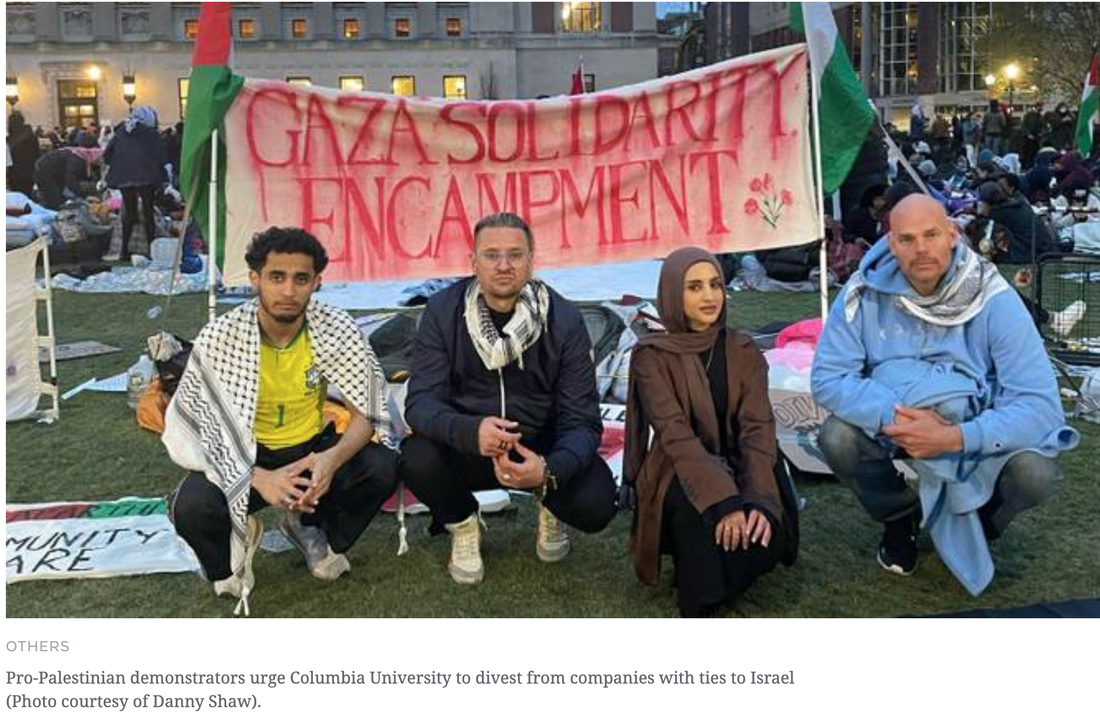
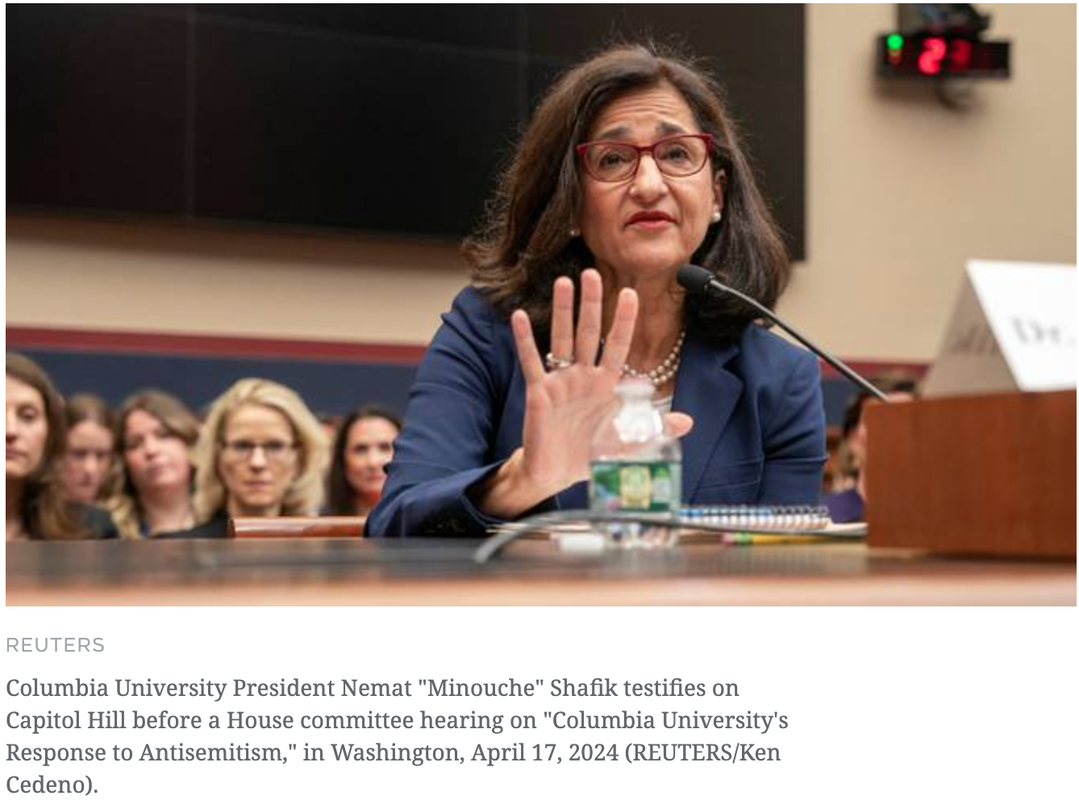

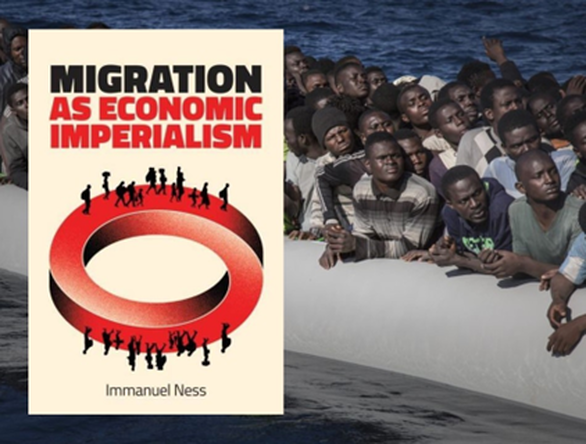
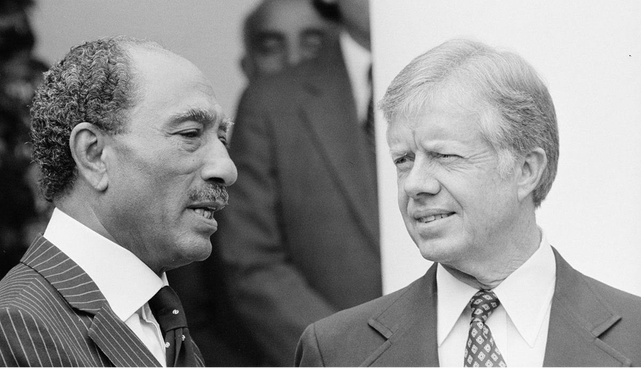
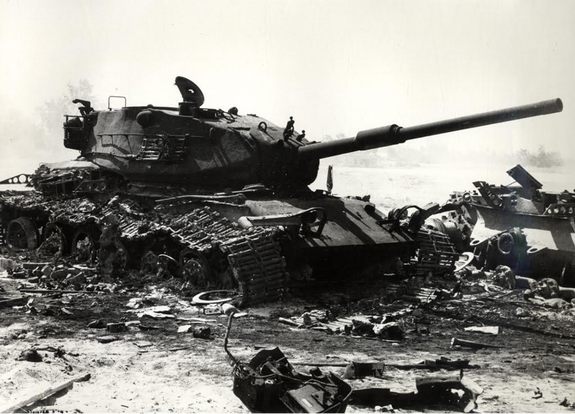
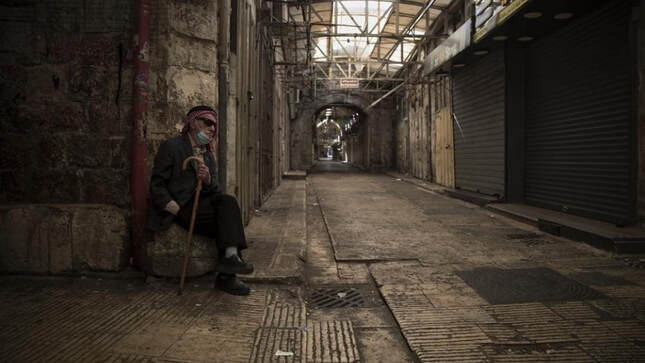
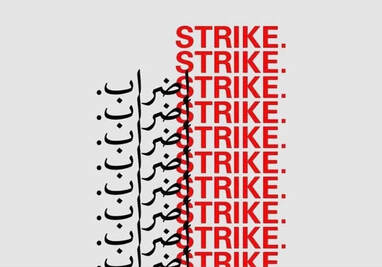
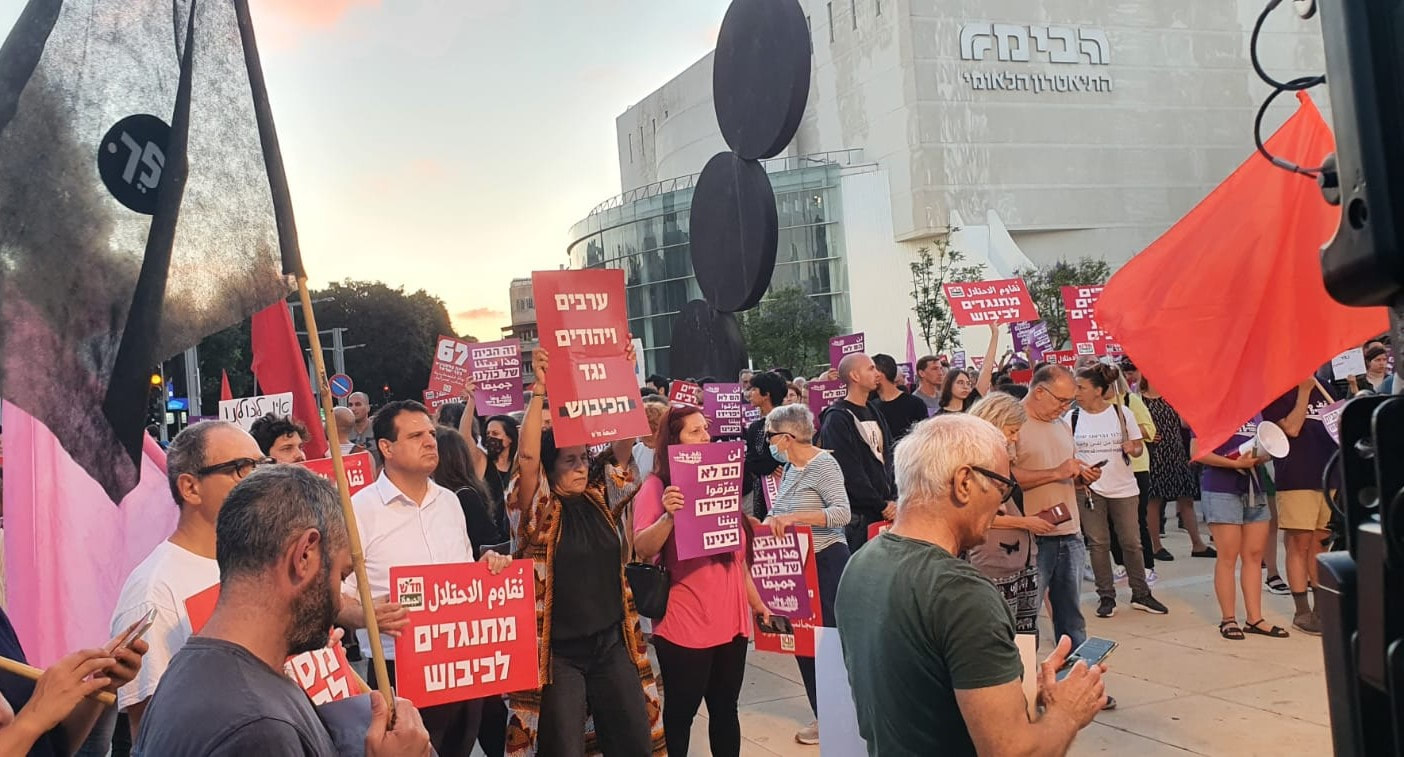


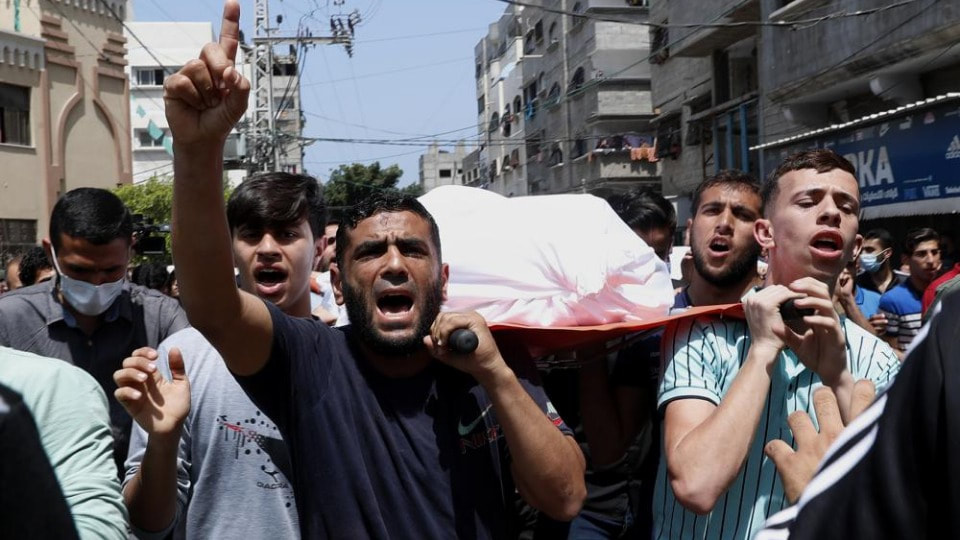
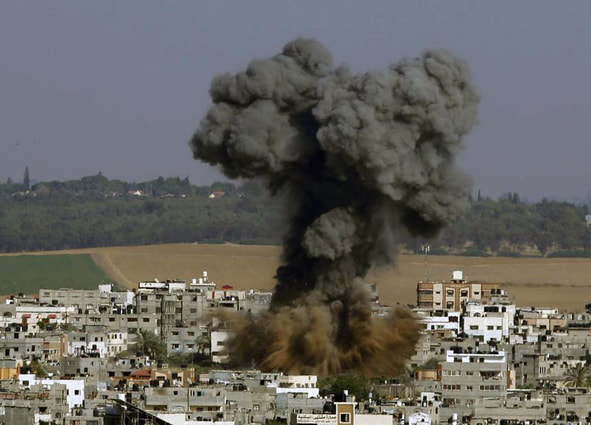
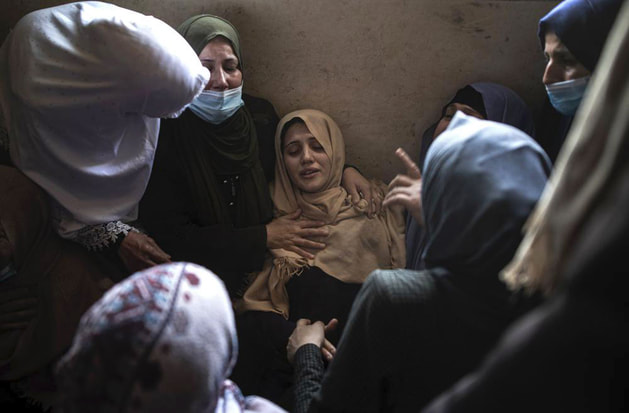
 RSS Feed
RSS Feed